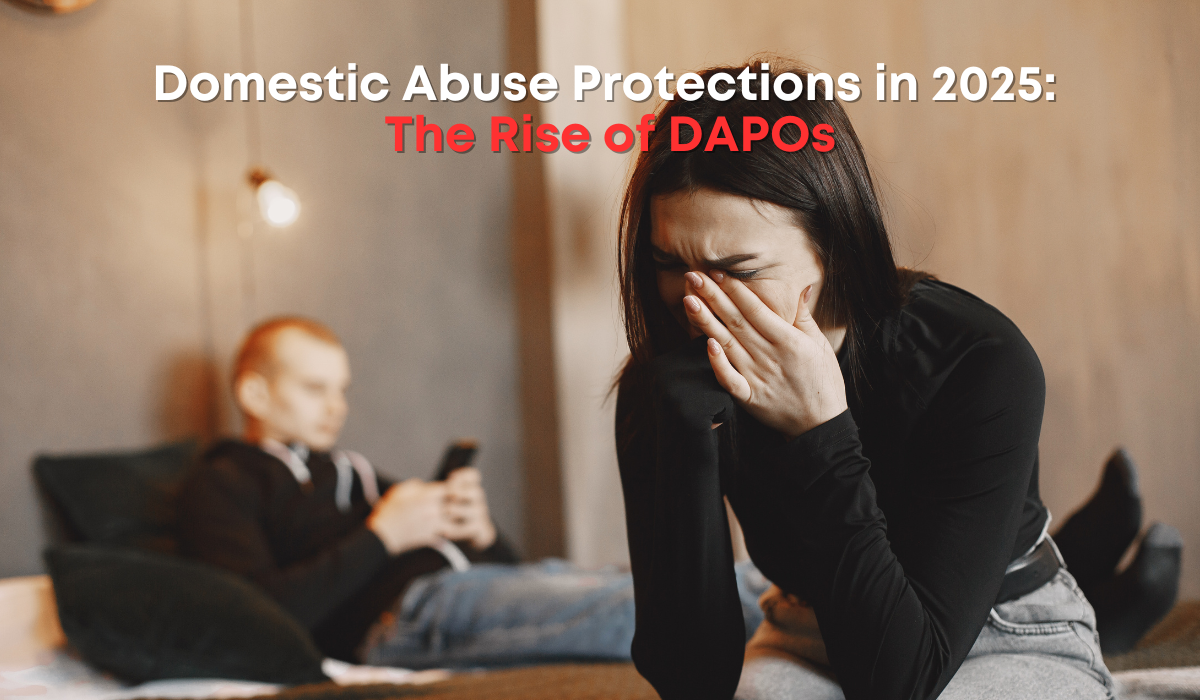The UK Government has taken a significant step forward in the battle against domestic abuse with the introduction of Domestic Abuse Protection Notices (DAPNs) and Domestic Abuse Protection Orders (DAPOs). These measures, outlined under the Domestic Abuse Act 2021, aim to offer swift and robust protection to victims while addressing some of the shortcomings of their predecessors, the Domestic Violence Protection Notice (DVPN) and Domestic Violence Protection Order (DVPO).
But what do these new tools mean for victims, practitioners, and society? And will they finally provide the consistency and enforcement needed to protect victims from immediate and long-term harm?
The Complex Web of Domestic Abuse Protections
Domestic abuse victims in the UK have several legal avenues to seek protection. From non-molestation orders issued in family courts to restraining orders granted by criminal courts, the legal framework has often been fragmented and challenging to navigate.
The introduction of DAPNs and DAPOs seeks to streamline and strengthen this landscape. According to the Act, these measures cover all forms of domestic abuse, including coercive control, psychological abuse, and financial abuse. This breadth reflects a modern understanding of abuse, transcending the outdated notion that domestic violence is solely physical.
DAPNs: Immediate Protection When It’s Needed Most
A DAPN is issued by the police to provide immediate protection to victims. Governed by sections 22–49 of the Domestic Abuse Act 2021, this notice empowers senior police officers to take swift action when they have reasonable grounds to believe abuse has occurred.
Interestingly, the law stipulates that a victim’s consent is not required for issuing a DAPN. This provision acknowledges the complex dynamics of abuse, where victims may struggle to recognise abusive behaviour or may hesitate to seek help. While this measure may save lives, it raises critical questions about how victims who do not consent to the notice will engage with its enforcement.
From DAPNs to DAPOs: Bridging the Gap
Once a DAPN is issued, the onus shifts to the police to apply for a DAPO, typically within 48 hours, excluding weekends and public holidays. DAPOs are designed to provide longer-term protection and can include both prohibitive measures—such as banning the perpetrator from approaching the victim—and positive requirements, like attending behaviour change programmes or substance misuse counselling.
The Government also aims to broaden access to DAPOs, allowing victims, specified third parties, and even the courts themselves to initiate applications. This flexibility, paired with a hybrid enforcement model, ensures breaches can be pursued as either criminal offences or contempt of court, promising a more robust deterrent.
A New Era or Old Challenges?
While DAPNs and DAPOs appear promising, the Centre for Justice Innovation has raised concerns about enforcement, citing inconsistent and under-resourced implementation of DVPNs and DVPOs. The fractured nature of local resources and agency priorities often left victims unprotected, even when measures were in place.
Will DAPNs and DAPOs suffer the same fate? Early signs suggest that without a significant investment in resources and training, these measures may fall short of their transformative potential.
Reflecting on the Broader Implications
The introduction of DAPNs and DAPOs signals a shift in the UK’s approach to domestic abuse. However, they also highlight the perennial challenges faced by the justice system: balancing swift action with due process, ensuring consistent enforcement, and securing the resources necessary for success.
As a family lawyer and journalist, I’ve seen firsthand how victims navigate the labyrinthine system of protections. It’s clear that while laws can evolve, their effectiveness depends on the infrastructure and willpower behind them. With the pilot schemes for DAPOs underway, we must watch closely to ensure these measures deliver on their promise and become the “go-to” protective order, as the Government intends.
Final Thoughts
Domestic abuse is a deeply entrenched societal issue that requires more than just legal remedies. DAPNs and DAPOs represent progress, but they are not a panacea. Victims need comprehensive support, communities need education, and systems need to work cohesively.
For victims and advocates alike, this is a moment of cautious optimism. With proper implementation and sustained attention, these measures could provide the protection and justice that victims of domestic abuse have long deserved.
As we await the results of the pilot schemes, one thing is certain: the fight against domestic abuse requires vigilance, empathy, and relentless advocacy. Only then can we ensure that these legal tools live up to their potential and help build a safer future for all.
Get in touch: For a comprehensive understanding of your options or queries on UK immigration matters, contact GigaLegal Solicitors at 02074067654 or click here to book a no-obligation consultation with an immigration expert.


